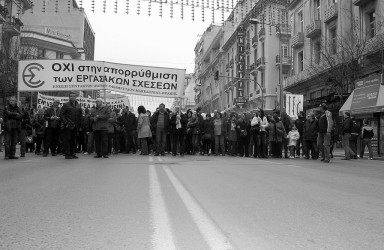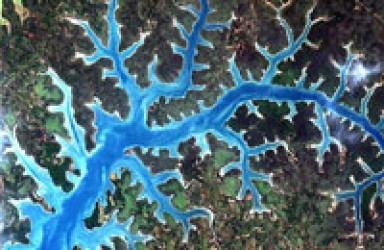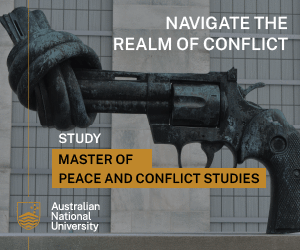What are the consquences of the notion of “Islamist terrorism”?
The use of othering discourse and increasing threat levels encourages fear and mass hysteria in Western countries. Preconditioned as we are by Religiophobia, ethnophobia and Islamophobia, the exaggerated threat of Islamic terrorism specifically and religious terrorism generally cannot be negated until dominant stereotypes and representations are subjected to change.
To what extent is the Panopticon a suitable analogy for power?
Power is pervasive; it belongs to no-one. Its main medium of control is surveillance. Bentham’s Panopticon is, on the whole, a suitable analogy for Michel Foucault’s conception of power. It encompasses the essence of Foucault’s work on power, though it does not represent it in its entirety.
Rousseau and the social contract tradition
A social contract implies an agreement by the people on the rules and laws by which they are governed. The state of nature is the starting point for most social contract theories, an abstract idea considering what human life would look like without a government or a form of organized society. The system Rousseau sees as the solution to overcome society, which has corrupted mankind, is both vague and unalterable.
Does the Greek debt crisis mark the beginning of the end for the Euro?
IN 1992, Milton Friedman asked: “how many more fiascos will it take before responsible people are finally convinced that a system of pegged exchange rates is not a satisfactory financial arrangement for a group of large countries with independent political systems and independent national policies?” Maybe the Greek debt crisis is the fiasco.
Was nationalism the primary cause of the wars in the former Yugoslavia?
The wars in the former state of Yugoslavia that endured for most of the 1990’s have an established legacy today. They have come to be seen by those in the West as a gritty, difficult and unpleasant series of conflicts, epitomised by horrific brutality perpetrated by ultra-nationalist thugs. Nationalism was a major feature of the wars as they were prosecuted, but not the primary cause of the Yugoslav wars. The answer is less clear-cut than it may seem.
Transnational Labour Migration and the International Sex Trade
The sex trade has been overlooked in migration studies, often only appearing in criminological or gender studies.
The Reflectivist Critique of Positivist IR Theory
The critique of positivism is fundamentally epistemological. Each side makes compelling arguments showing the strength of their position.
Why is the Maastricht Treaty considered to be so significant?
The Treaty of Maastricht elaborated and implemented concepts discussed in the previous Single European Act of 1986. It also established the European Monetary Union (EMU) and the Treaty on European Union (TEU) which lead to the construction of the main pillars of the European Union and the introduction of the single currency.
Waever’s assessment of neo-neo synthesis and its validity in the neo-neo debate
The convergence of neo-realism and neo-liberalism is self-evident from the fact that scholars of the two great schools, in addition to sharing a set of fundamental assumptions, ended up having the same central theme of reflection: how to assess, in a situation of anarchy, the effects that international structure have on the behaviour of states.
Water wars? The Role of Hegemony in the Jordan River, Nile River and Columbia River Basins
Predictions of “water wars” have become an important and even customary part of global diplomatic discourse. In 1995, the World Bank’s vice president for environmentally sustainable development famously asserted “if the wars of this century were fought over oil, the wars of the next century will be fought over water”. What is the truth about transboundary water and the potential for war?











